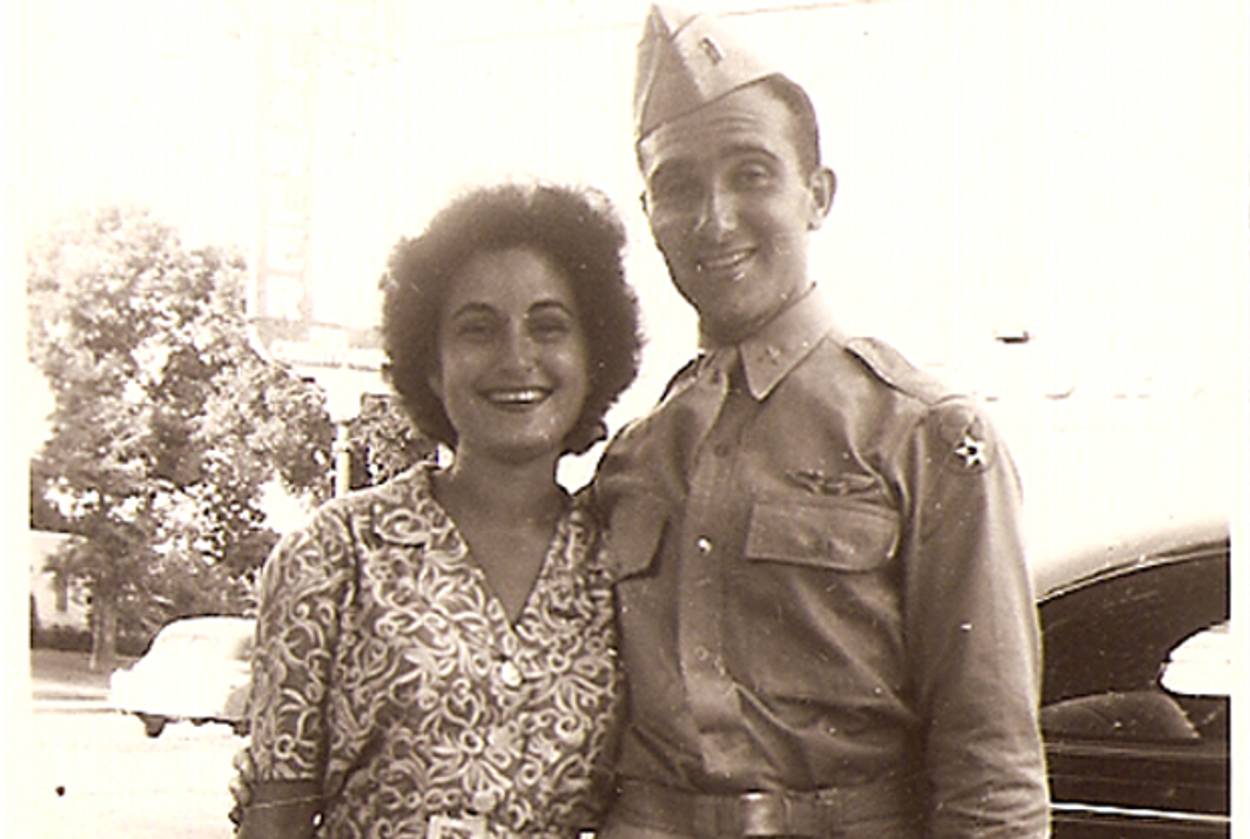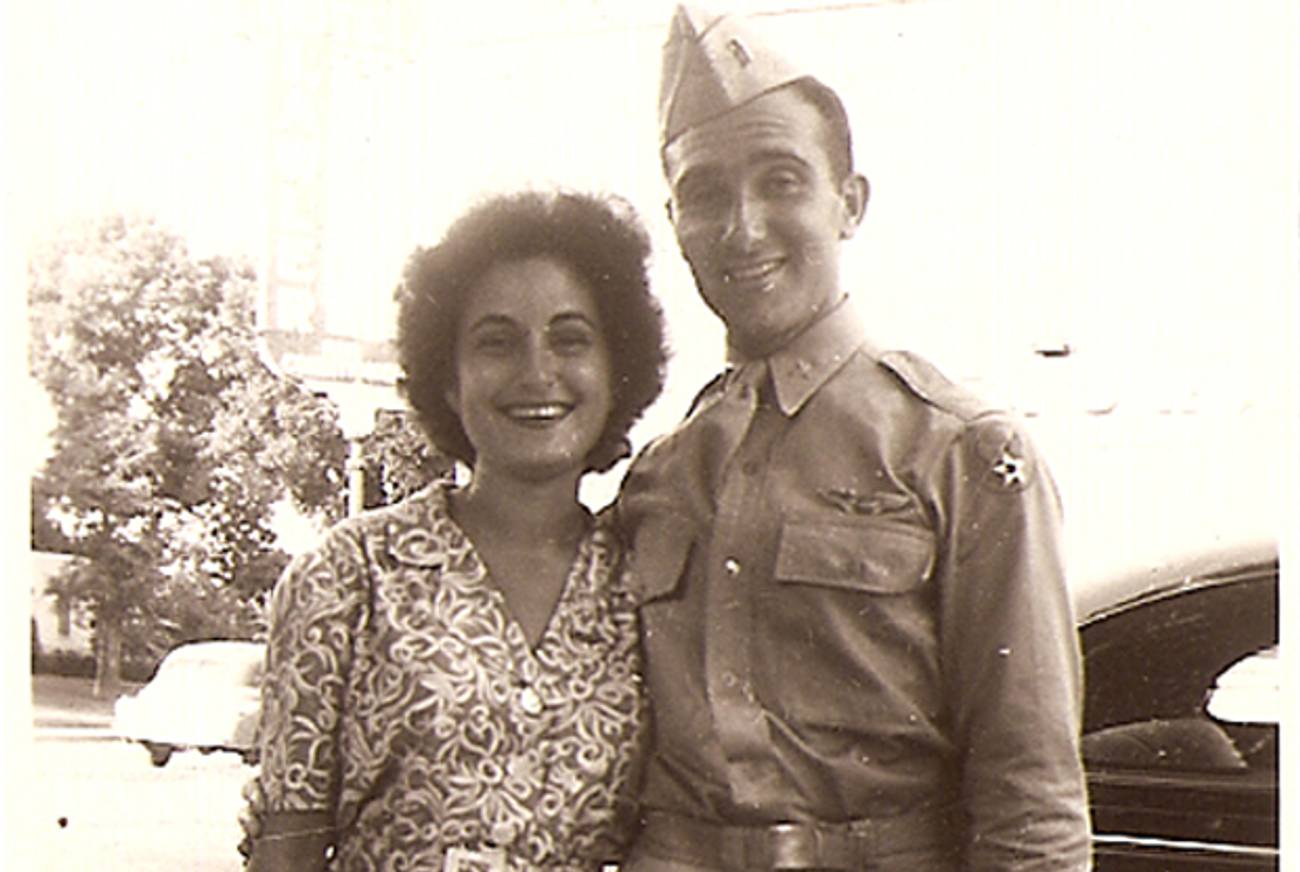The Search for My Uncle Harry
When his B-17 went down 70 years ago today, a mystery was born




On November 26, 1943, beginning at 8:12 a.m. and continuing at one-minute intervals, 25 B-17s belonging to the 92nd Bombardment Group (Heavy) took off from England and headed across the North Sea. One of them, 42-30608, belonged to the 326nd Bomb Squadron. Second Lt. Joseph H. Joffe, my uncle, was the navigator.
At 11:24 a.m. the formation made a right turn and minutes later, the planes made landfall over Langeoog, one of the eastern Frisian Islands. My uncle’s aircraft and its crew had the poor fortune of occupying the left rear position within the lowest formation, flying at 25,300 feet. Anti-aircraft fire began and German fighter planes attacked the formations before they reached Bremen, their target.
Aircraft 42-30608, a B-17F manufactured in Seattle, cost $316,426 and had been received on July 1, 1943. It, like the crew, had only arrived in England during early September. So far as I can tell the crew had only undertaken a handful of combat missions, possibly only two, before November 26th, on November 5 and November 16. To my knowledge there is no record of the plane having a name, nor are there any photographs of it or the crew of ten.
November 26, 1943 was to be a large raid on Paris and Germany. The 326th’s official diary comments angrily that “326th is flying low squadron of a composite group which is flying low, pretty damn low of the group, what group.” The attack on targets around Paris was aborted due to cloud cover. The attack on Bremen continued. The diary noted that “one of our Forts went down, there were no reports of where or how it went down, just that it was last seen going into a cloud that was full of fighters.”
Born in Long Branch, New Jersey, Harry, as he was known, was the second youngest of seven children. The youngest is my father. By all accounts Harry was bright and promising. He graduated from Rutgers University, was a journalist, and married his girlfriend Irene in early 1943. I contacted her during the 1970s. I still have the letter, but it is difficult to read it now, more than before. She went on with her life, remarried, and remained close to my family, at least for a while.
Harry enlisted on January 31, 1941 and moved to the Air Corps sometime in 1942. Details are unclear. His service file was destroyed in the 1973 fire at the St. Louis records center, three years before I began researching his death. The family kept dozens of his letters, the last one dated November 21, 1943, but it is the nature of family correspondence and wartime censorship that they say much but reveal little. The letters were photographed and reduced to save space, small snapshots in miniature envelopes, like snowflakes, each different, but the same. He enjoyed the kosher restaurant in London, especially the luxshen soup, and planned to eat there every time he was in the city. He went to services, commented that they were Orthodox, and said that his father, Long Branch’s shochet, would have been proud that he had followed along. He promised his mother he would take care. They continued to write to him until the end of November.
No one saw the plane crash, no bodies were found, no prisoner of war records suggest he or anyone survived. Except for family memories and a few lines of text there is almost no evidence at all that any of this ever happened, except that in a brief moment of time, 70 years ago, my uncle and nine others flew into a cloud and disappeared. More could be said about him, reconstructed from letters and conversations. But the central question remains, a void that opened in the heart of my father’s family and which set wheels into motion, unknowable causes and unquantifiable effects.
One death among more than 26,000 killed in action in the Eighth Air Force alone, a tiny grain of sand among the tens of millions killed during World War II. Finite moments of suffering registered against the uncountable. How do we begin to measure? A few years ago I took a brief flight in one of the few surviving B-17s and we flew lazily from Westchester to West Point and back on an overcast summer day. The machine is unspeakably loud, its interior constructed only of sharp right angles of metal. We flew at only a few hundred feet, not thousands. There was no cold, no frostbite, plenty of oxygen, the modernized machine was in top condition, and no one was trying to kill us. I was utterly terrified the entire time. The terror of a real combat mission remains, to me at least, unmeasurable. And what of the terror of falling, toward the North Sea, grey and hard as cement? What of the spinning? Burning? Bleeding? Who can say? Two B-17s were lost that day. One crew member froze to death.
Others survived. Harry’s brother, my uncle Sid, the garrulous and outgoing one, was severely wounded on Guam. The fragments of Japanese shrapnel he carried were somehow never quite real to me, although he would rub the spots all the years I knew him. He didn’t know why he had been permitted to live. Uncle Sam, a little over five feet tall, quiet and withdrawn, went to the Philippines and Japan as part of the occupation force. My father, the baby, with 18 years between him and the oldest, was in the Navy at the end of the war, so perhaps I owe my existence to the Enola Gay. The family went on, except it didn’t. It was said that my grandmother was never the same after Harry. She died in 1949. The seven siblings produced only two in the next generation, my sister and I. Sitting on the porch of what had been my grandparents’ house with my aunts and uncles during hot summer nights in the 1960s, fireflies running riot in the yard below, a void was evident, even to a child. Something had been lost, something was missing, a spark had gone out of one Jewish family from the Shore. They had retreated into themselves.
Or perhaps it was just me. How I hate mysteries. But some mysteries cannot be explained, we only get so close but no further. Still, we go on.
Alex Joffe is an archaeologist and historian. His website is alexanderjoffe.net.
Alex Joffe is a Senior Non-Resident Fellow at the Begin-Sadat Center for Strategic Studies.